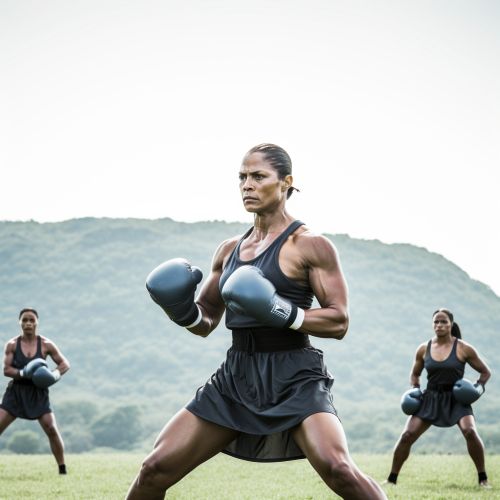Spartan women
Introduction
Spartan women were a crucial part of one of the most well-known ancient Greek societies, Sparta. They were known for their independence, education, and physical fitness, which were unusual for women of that time. Spartan women were also unique in the ancient world for owning property and exercising political power.


Role in Society
In Spartan society, women had a role that could be considered progressive even by today's standards. They were expected to maintain their physical strength and actively participate in certain public events. Unlike women in other Greek city-states, Spartan women were encouraged to learn, to engage in physical training, and to participate in and even win, public competitions.
Education
The education of Spartan women, known as the agoge, was focused on physical fitness, endurance, and courage, but also included music, dance, and literature. This education was designed to prepare them for their roles as wives and mothers in Spartan society. The agoge was a state-sponsored system of education, which was compulsory for all Spartan citizens.
Marriage and Family
Marriage was an important institution in Spartan society, and Spartan women were expected to marry and produce children, specifically warriors. Spartan marriage customs were unique and involved rituals such as the bride shaving her head and dressing in men's clothing. The purpose of these customs was to promote fertility and to ease the transition for Spartan men, who until marriage lived in communal barracks with other men.
Property and Wealth
Spartan women had the right to own and inherit property, which was unusual in ancient Greece. They could also control their own wealth. This economic power gave them a significant role in Spartan society. By the classical period, Spartan women reportedly owned around 40% of the land.
Political Influence
While Spartan women did not have the right to vote or hold public office, they had a significant influence on Spartan politics. They could express their opinions in public and had the right to public respect. Their economic power also contributed to their political influence.
Physical Training
Physical fitness was highly valued in Spartan society, and Spartan women, like the men, were expected to maintain their physical strength. They participated in sports such as wrestling, running, and javelin throwing. This emphasis on physical fitness was tied to the societal expectation that Spartan women would produce strong, healthy warriors.
Legacy
The legacy of Spartan women is complex. They were admired for their strength and independence, but also criticized for their perceived licentiousness and influence over men. In modern times, Spartan women are often used as a symbol of female empowerment.
